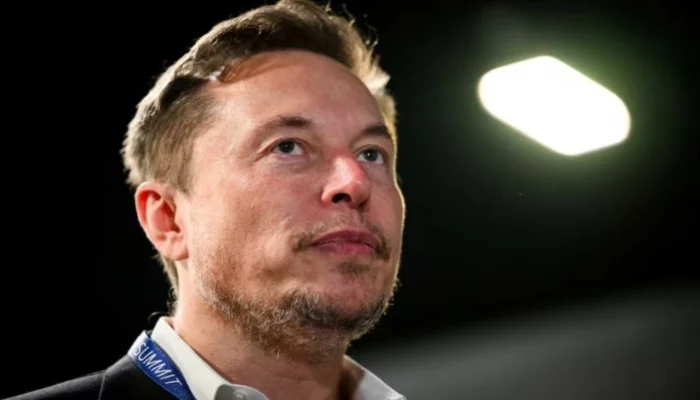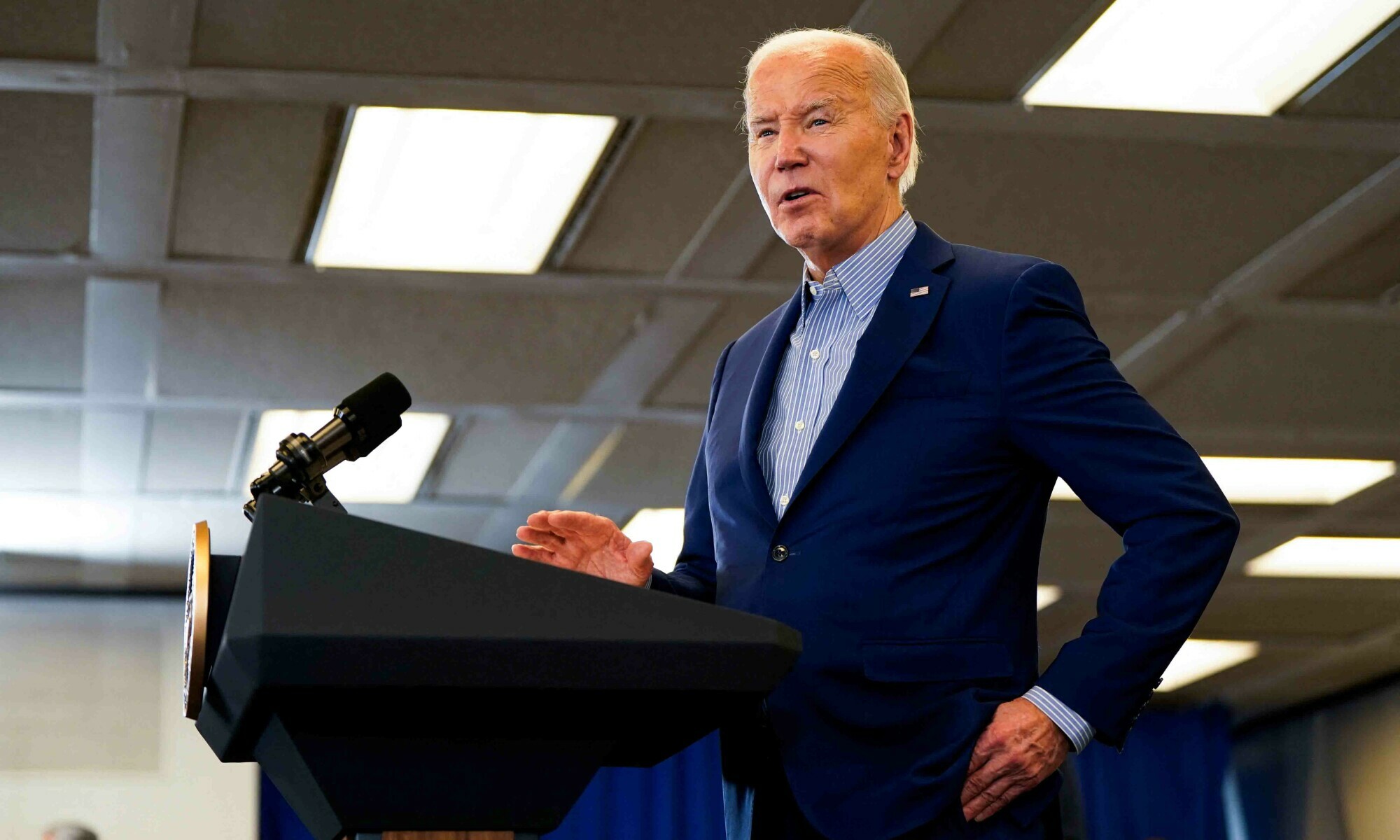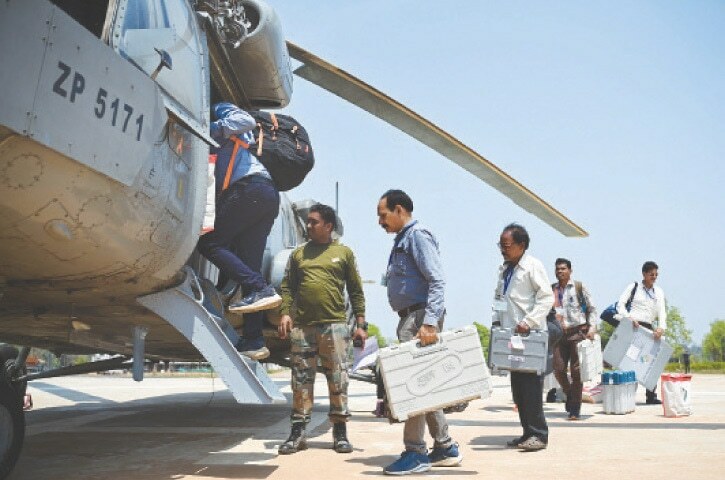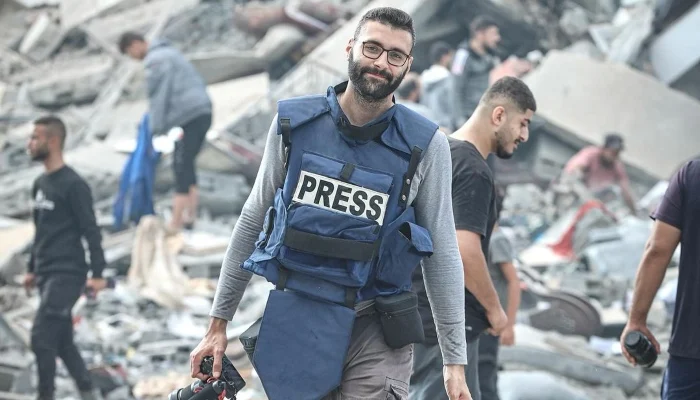World News


Tesla CEO Elon Musk has reportedly postponed his much-anticipated visit to India, according to CNBC-TV18 citing sources familiar with the development.
The immediate reasons for the postponement are not known as yet, Business Today reported.
Musk was scheduled to visit India on April 21 and 22 to meet with Prime Minister Narendra Modi and announce plans to enter the Indian market.
Earlier this month, Musk, 52, announced that he would soon visit the country and meet with PM Modi, 73, garnering much attention worldwide.
In a post on X, formally known as Twitter, he wrote: “Looking forward to meeting with Prime Minister @NarendraModi in India."
Many suspected that the tech billionaire might be visiting India to propose setting up manufacturing facilities for Tesla in the country as people linked his tweet to a notification from the Union government from a few weeks ago.
The notification was about a new electric vehicle manufacturing policy that allows the government to give duty concessions to electric car companies committing to make in India.
According to the earlier proposed plan, the Tesla CEO was supposed to be in India for 48 hours, meeting the PM, space startups and business leaders.
Musk was expected to engage in discussions with startups at Bharat Mandapam, an exhibition hall.
However, it's uncertain whether the Starlink agreement will be finalised during this trip as sources said the final nod from India's Ministry of Home Affairs is still awaited.
The postponement of the tech mogul’s visit comes ahead of major elections in the country with Modi likely to win.
With the model code of conduct in place, a formal announcement on Starlink may not happen, according to Business Today.
The SpaceX CEO previously met with Modi in June last year during the PM’s visit to the US where Musk had revealed plans to visit India in 2024, while expressing confidence that his electric vehicle company will enter the Indian market soon.

Beijing on Thursday accused the United States of hypocrisy in response to accusations by President Joe Biden that China is “xenophobic” and “cheating” on trade.
“I would like to ask him: are you talking about China or the US itself?” foreign ministry spokesman Lin Jian said when asked about the comments.
In a speech on Wednesday to union members, Biden called for a hike in steel tariffs on China, accusing it of cheating as he courted blue-collar voters on an election campaign trip to the battleground state of Pennsylvania.
“They’re not competing, they’re cheating. They’re cheating and we’ve seen the damage here in America,” the 81-year-old Biden said to cheers at the headquarters of the United Steelworkers union in Pittsburgh.
The Democrat said Chinese steel companies “don’t need to worry about making a profit because the Chinese government is subsidising them so heavily”.
Biden said he had called for the US Trade Representative to triple the tariff rates for Chinese steel and aluminium if Beijing was confirmed to be using anti-competitive practices.
“They’re xenophobic,” he added. “They’ve got real problems. I’m not looking for a fight with China, I’m looking for competition — but fair competition.”
Beijing and Washington have clashed in recent years on flashpoint issues from technology and trade to human rights as well as over the self-ruled island of Taiwan and the disputed South China Sea.
Relations have stabilised somewhat since Presidents Biden and Xi Jinping met in San Francisco in November for talks that both sides described as a qualified success.
The two held a follow-up telephone call this month, where they clashed over US trade restrictions on technology and on Taiwan, which Beijing claims.
But they also agreed that two high-level US officials would soon travel to China — US Treasury Secretary Janet Yellen visited last week, with top diplomat Antony Blinken due in Beijing soon.
The US also this week announced a probe into China’s trade practices in the shipbuilding, maritime and logistics sectors.
China’s commerce ministry hit back, saying the probe was “full of false accusations, misinterpreting normal trade and investment activities as harming US national security and corporate interests, and blaming China for its own industrial problems”.

NEW DELHI: India begins its crucial national elections on Friday amid hopes and fears for its troubled democracy.
Prime Minister Narendra Modi, the most right-wing leader to head the country, is hoping to win a third consecutive term, the first time since Jawaharlal Nehru, while his rejuvenated rivals say he could lose.
Mr Modi says he is confident of getting more than 400 seats in the 18th Lok Sabha, a brute majority of in the 545-seat lower house, a feat achieved only once by Rajiv Gandhi.
The Bharatiya Janata Party hopes to increase its tally from 303 to 370, the rest coming from other members of the ruling National Democratic Alliance (NDA). It is widely feared that Mr Modi would seek to use the majority to change the constitution to align with his idea of Hindu Rashtra.
Opposition sees an opening for itself in PM’s northern stronghold; Modi says he is confident of getting more than 400 seats in Lok Sabha
Mr Modi’s hitherto fractious rivals comprising regional parties plus the Congress, recently cobbled the India National Development Inclusive Alliance (INDIA) bloc. They are pitching for the removal of the NDA from power for its “whimsical policies, narcissistic hegemony, communal avowal as well as violence against the minorities and the fear factor against any dissent”.
Ground reports say there is no Modi wave evident in any part of the country, but these are early days. The biggest chunk of seats will be in the fray on Friday, covering 102 races in 21 states. The remaining six phases of the polls, including the last leg on June 1, will make these the longest elections in memory. Security is cited as the reason, and it would involve the deployment of 3.4 lakh paramilitary forces in rotation.
West Bengal, where the Bharatiya Janata Party is hoping to expand from the 18 of 42 seats it won last time, would see polls in all seven phases. A maximum of 92,000 security personnel are likely to be deployed there.
The BJP had just two seats in the state in 2014.
The NDA is banking largely on the so-called Modi magic together with the Ram Mandir and the abrogation of Article 370 in Jammu and Kashmir. Every BJP leader is reinforcing Hindutva, which otherises the Muslims. The BJP’s manifesto is personalised as ‘Modi ki Guarantee’, with the programmes of a decade-long rule listed. The Congress’s promise of ten forms of justice has fresh appeal: “We promise you greater freedom, faster growth, more equitable development and justice for all.”
The rub however is in the numbers. Mr Modi’s 39 per cent votes got him 55 per cent seats in 2019. In so doing, he obviously won by dividing the 61 per cent votes cast for non-BJP parties.
The opposition sees in this a chance, which requires it to unite where it matters. The question is where would Mr Modi find the extra 67 opposition seats while not losing any of his to account for the BJP’s goal of hitting 370 without allies.
The opposition sees an opening for itself in Mr Modi’s northern stronghold. Much has changed since 2019 when he won all seven seats in Delhi, all 10 in Haryana, all 25 in Rajasthan, 25 of 48 in Maharashtra, 27 of 29 in Madhya Pradesh, all 26 in Gujarat, 62 of 80 in Uttar Pradesh, 22 of 40 in Bihar, all five in Uttarakhand and all four in Himachal Pradesh.
That adds up to 213 seats for the BJP from the northern stronghold. Elsewhere, the BJP picked up 25 out of 28 in Karnataka, eight of 21 in Odisha and four from 17 in Telangana. The BJP won two seats from 25 in Andhra Pradesh. It’s saturated in the north and in the absence of a divisive issue clicking, the chances are it could only go down from there.
In Karnataka, Telangana and Himachal Pradesh the Congress has taken power since the last elections. The BJP might improve its tally in Andhra Pradesh where it has cobbled an alliance with the Telugu Desam. Wild guesses have been made, however. Rahul Gandhi says the Modi alliance could be restricted to 180, nearly a hundred short of a majority.
Shiv Sena’s Uadhav Thackeray on whose strength the BJP won handsomely in Maharashtra feels, not without a tinge of bitterness that the BJP would get just 45 seats. And the Trinamool Congress of West Bengal says it would get twice the number of seats than the BJP in the state, which should worry Mr Modi’s supporters.
After the Muzaffarnagar communal polarisation of 2014 and Pulwama-Balakot nationalist fervour fuelled his campaign in 2019, the Modi souffle has so far failed to rise again.

Time Magazine has inlcuded Palestinian photographer Motaz Azaiza in ‘Icons’ category in ‘The 100 Most Influential People Of 2024’.
The magazine said Azaiza acted as the world’s eyes and ears in Gaza for 108 days.
"Armed with a camera and a flak jacket marked ‘PRESS,’ the 25-year-old Palestinian photographer spent nearly four months documenting life under Israeli bombardment: families displaced from homes, women mourning loved ones, a man trapped beneath the rubble," it said.
It said the images provided by the young man offered a glimpse into Gaza, where Israel has barred entry of international journalists.
Acknowledging the Time’s announcement, the journalist said he was really blessed to share his country’s name with him wherever he went or whatever he achieved.
“For those who don’t recognize Palestine as a state, or for those who claim that it is their land. Palestine gonna be free one day from Zionists and occupation. Everyone does his part, and my part is not done yet,” he wrote on his social media account.
He has 18.2 million followers on Instagram and about 1.1 million on Twitter.
Time said Azaiza reported from the war-torn areas at great risk as more than 95 journalists have been slayed by Israel in the besieged enclave since October 7, which has been the deadliest period for the press since 1992, when the Committee to Protect Journalists started tracking fatalities. Scores of other media persons have been injured or arrested by the Israeli occupational forces in the Gaza Strip.
The magazine said since evacuating Gaza, the photojournalist has started raising awareness of the Middle East crisis worldwide.
It quoted the Palestinian journalist as saying: “What is happening in Gaza is not content for you. We are not telling you what is happening ... for your likes or views or shares. No, we are waiting for you to act. We need to stop this war.”
A couple of weeks ago, Azaiza met US Congresswoman Rashida Tlaib at her office.
“We talked a lot about our struggles as Palestinians and her work in the congress. Palestinians will keep resisting till we get our freedom. Everyone has his own battle !! We are making changes and people started to understand and be aware about what’s really happening,” he wrote.

Event Aims to Elevate Pilgrimage and Visitor Experience in Saudi Arabia
Al-Madinah, April 15, 2024 - The Ministry of Hajj and Umrah is in the final stages of preparation for the launch of the inaugural Umrah and Ziyarah Forum, scheduled to convene in Al-Madinah on Monday, April 22 for three days. With the esteemed patronage of His Royal Highness Prince Salman bin Sultan bin Abdulaziz Al Saud, Prince of the Madinah Region, the forum will unfold at the King Salman International Convention Center, spotlighting initiatives aimed at enriching the experience of pilgrims and visitors, both within and beyond the Kingdom of Saudi Arabia.
The Umrah and Ziyarah Forum, a cornerstone of Saudi Vision 2030, is a testament to our commitment to the future. It is designed to facilitate increased access for pilgrims and visitors to the sacred sites of Makkah and Al-Madinah while ensuring an unparalleled standard of service. In collaboration with the Pilgrim Experience Program, the forum will draw participation from government officials and private sector stakeholders, including travel agencies, pilgrimage and tourism companies, and innovators spanning insurance, healthcare, transportation, and technology.
The forum's agenda includes exploring transformative opportunities within the Umrah and Ziyarah sectors. Deliberations will focus on projects, services, and products that enhance the pilgrimage journey, aligning closely with Saudi leadership's directives to optimize resources for the benefit of visitors to the Holy sites.
Attendees can look forward to a vibrant exchange of ideas during the forum's general sessions and workshops. The accompanying exhibition will showcase not just innovative offerings, but potential game-changers from participating sectors and companies. The Ministry of Hajj and Umrah is on the cusp of unveiling groundbreaking initiatives, partnerships, and agreements that could revolutionize services and enhance the journey experience for travellers to Makkah, Al-Madinah, and other culturally significant sites.
The Umrah and Ziyarah Forum is not just a local event, but a global convergence point. It is a testament to Saudi Arabia's commitment to realizing the objectives of the Pilgrim Experience Program under Saudi Vision 2030. By fostering a journey imbued with spirituality and hospitality that meets global standards, the forum seeks to leave an enduring impression on pilgrims and visitors worldwide. It is a convergence point for decision-makers, experts, investors, and innovators, fostering collaboration among domestic and international entities.
Those interested in participating in the forum and accessing further details on the agenda and associated events should visit umrah-ziyarah.com

JERUSALEM: Israel and Iran traded threats on Tuesday after Tehran’s first-ever direct attack on its arch-foe sharply heightened regional tensions as the Gaza war ground on with no truce in sight.
Israeli military spokesman Rear Admiral Daniel Hagari said Iran would not get off “scot-free” after Iran launched a barrage of over 300 missiles, drones and rockets at Israel at the weekend.
“We cannot stand still from this kind of aggression,” Hagari said, a day after Israel’s military chief vowed there would be “a response” to Iran’s offensive.
Iran said its attack was an act of self-defence following a deadly Israeli air strike on its consulate in Syria and that it would consider the matter “concluded” unless Israel retaliated.
Putin, Erdogan join list of world leaders calling for restraint; US warns of further sanctions on Tehran
Iran’s President Ebrahim Raisi warned that “the slightest action against Iran’s interests will definitely be met with a severe, extensive and painful response”.
Israel weighs options
Israel was weighing its options after the Iranian drone and missile onslaught, which caused little damage as Israeli defences intercepted most projectiles, helped by US, British and French forces, as well as regional allies.
It remained unclear when Israel might strike and whether it would target Iran directly or attack its interests or allies abroad, including in Lebanon, Syria, Iraq and Yemen.
Israel made its first official comment on Monday on the strike that levelled a five-storey Iranian consulate building on April 1, killing seven Iranian Revolutionary Guards, including two generals.
“These were people who engaged in terrorism against the State of Israel,” Hagari said.
Calls for restraint
Meanwhile, world leaders have urged restraint and de-escalation.
During a phone call with Raisi, Russian President Vladimir Putin called on both sides to “show reasonable restraint and prevent a new round of confrontation,” the Kremlin said in a readout of the call.
He warned that further escalation in the Middle East could have “catastrophic consequences”.
Turkish President Tayyip Erdogan said on Tuesday that Israel’s Netanyahu and the Israeli leadership are solely responsible for the recent escalation of tensions.
“Israel is trying to provoke a regional conflict, and its attack on Iran’s embassy in Damascus was the last drop,” he told a press conference in Ankara after a cabinet meeting.
He added that new regional conflicts were possible as long as the “cruelty and genocide” in Gaza continued, and called on all parties to act with common sense.
In a statement, Portugal’s foreign ministry also urged de-escalation in the Middle East.
A day ago, US President Joe Biden stressed that “the United States is committed to Israel’s security” and wants to prevent the conflict from spreading.
Washington, Israel’s top ally and arms supplier, has made clear it will not join Israel in any attack on their common adversary Iran, a senior US official said.
More sanctions
Israeli Foreign Minister Israel Katz called on 32 countries to impose sanctions on Iran’s Islamic Revolutionary Guard Corps and their missile programme.
German Foreign Minister Annalena Baerbock, who will head to Israel on Tuesday, urged the European Union to impose sanctions on Iranian drone technology.
“I campaigned in late autumn together with France and other partners within the European Union for this drone sanctions regime to be extended further,” she said, adding she also wanted it to cover “other missile technologies in Iran’s arsenal”.
“I hope that we can now finally take this step together.”
Also on Tuesday, US Treasury Secretary Janet Yellen warned of further sanctions targeting Iran, saying she expects Washington will take added action “in the coming days.”
“I fully expect that we will take additional sanctions action against Iran in the coming days,” she said as this week’s spring meetings of the International Monetary Fund and World Bank began in Washington.
The Treasury, Ms Yellen said, will not hesitate to work with US allies to “use our sanctions authority to continue disrupting the Iranian regime’s malign and destabilizing activity.”

The United Arab Emirates witnessed record-breaking and highest levels of rainfall for the first time in 75 years with even Dubai flooding under rainwater.
After the unprecedented weather phenomenon, UAE's National Centre of Meteorology issued a red alert, urging residents to remain vigilant as weather conditions continued to get severe.
While the rain has stopped in UAE states for the last eight hours, the government has issued instructions urging people to stay at home.
Dubai's leadership has ordered immediate measures in the city amid rain emergency during a meeting with the crisis and disaster management team.
As per media reports, Dubai experienced record rainfall of two years in just one day.
The sanitary staff in the Gulf country is busy draining rainwater from the roads. In Abu Dhabi, Sharjah and other states, efforts are underway to remove the water accumulated on the roads.
Reports were received regrading an Emirati citizen being swept away in floodwater in Ras Al Khaima.
Al Ain, a region known as 'Khatm Al Shakla', witnessed an astonishing 254.8mm of rainfall in less than 24 hours, as reported by meteorological authorities.
Thunderstorms and lightning strikes persisted throughout the night, intensifying the downpour that continued into Wednesday.
Forecasters predicted the ongoing unstable weather patterns from Tuesday through Thursday, driven by a prolonged "low surface pressure" system and two waves of turbulent weather sweeping across the UAE.
In response to the escalating weather conditions, the UAE government directed its employees to work remotely on Wednesday, extending the remote working period for government entities as well as remote learning for private school students.
Private sector companies were also encouraged to adopt remote work arrangements to prioritise employee safety.
The heavy rainfall in the UAE has affected the movement of vehicles on major highways with vehicles left by their owners on the roadways and jam-packed traffic impacting even roads leading to the Dubai city's International airport.
Transportation services faced disruptions, with delays and disruptions reported on public transit systems and flight diversions at airports due to adverse weather conditions.
Meanwhile, the heavy rains in Oman have claimed 18 lives so far, according to Arab media reports; therefore, authorities in Oman have also instructed people to work from home.
In Oman, most of the trams were lost in floodwater.
Flights impacted at DXB
Dubai International Airport (DXB) said on Wednesday that it was experiencing significant disruption due to bad weather and was working to restore normal operations as quickly as possible.
Flights are delayed/diverted and impacted by displaced crew, DXB said in a statement, adding that recovery would take some time.
DXB was temporarily diverting arriving flights on Tuesday evening because of a storm and operations were suspended for 25 minutes earlier in the day.
The authorities have requested the public and passengers to be patient after airport management's delayed arrival due to challenges during the commute.
At least 46 flights from UAE to Pakistan have been cancelled due to the rain.
Road congestion and tailbacks, including those on major highways like Sheikh Zayed Road, due to standing water, led to unusual scenes of commuters disembarking from buses and taxis.
Furthermore, electricity disruptions were reported in some areas, prompting residents to take precautions and prepare for potential power outages.


